Starting a new business is an exciting venture, but it also comes with the challenge of getting your brand noticed in a highly competitive market. For aspiring entrepreneurs, digital marketing isn’t just an option—it’s a necessity. With the right strategies and tools, digital marketing can help you reach your target audience, build brand loyalty, and generate consistent growth. This guide covers the key digital marketing essentials you need to know to elevate your business.
What is Digital Marketing and Why is it Important?
Digital marketing refers to the use of online channels like websites, social media, and email to market your product or service. Its importance lies in its ability to connect businesses with their target audience directly, cost-effectively, and on a global scale. The days of relying solely on traditional advertising, like print and TV ads, are long gone. Today, consumers are actively searching for products and solutions online, making digital marketing the most powerful way to meet them where they are.
The Essentials of Digital Marketing for Entrepreneurs
1. SEO Basics: Optimizing Your Online Presence
Search Engine Optimization (SEO) should be the foundation of your digital marketing strategy. It’s the process of improving your website visibility in search engines like Google.
Key Elements of SEO:
- Keyword Research: Identify the search terms your target audience is using. Tools like Google Keyword Planner can help.
- On-Page Optimization: Use keywords naturally in your content, meta descriptions, headings, and image alt tags.
- Technical SEO: Improve your website’s speed, mobile responsiveness, and navigation structure.
By investing in SEO early, you’ll improve your organic traffic and reduce reliance on paid ads.
2. Social Media Marketing: Connecting with Your Audience
Social media platforms like Instagram, Facebook, LinkedIn, and TikTok are ideal for building relationships with your audience.
Tips for Effective Social Media Marketing:
- Post consistently to stay top of mind.
- Share a mix of content formats—images, videos, stories, and polls.
- Engage with your followers by replying to comments and messages promptly.
- Analyze which posts perform well and refine your strategy accordingly.
Social media isn’t just about promoting your product; it’s about building trust and a community around your brand.
3. Content Marketing: Creating Valuable and Engaging Content
Content marketing is about delivering valuable information that educates, entertains, or inspires your audience. It positions your brand as a thought leader.
Key Content Marketing Forms to Consider:
- Blog Posts
- Video Tutorials
- Infographics
- E-books or Guides
- Podcasts
For example, if you’re a fashion entrepreneur, you could create styling tips through blog posts or how-to videos to engage your audience.
4. Email Marketing: Building Relationships and Driving Conversions
Email marketing remains one of the most effective and affordable ways to stay connected with your audience.
What You Need to Focus On:
- Use email list-building tools like pop-ups on your website to collect leads.
- Personalize emails with the recipient’s name and tailor content based on their behavior.
- Share exclusive deals, updates, and newsletters that add value.
Email marketing is also a great way to nurture leads and turn them into loyal customers.
5. Paid Advertising: Leveraging PPC and Social Media Ads
Paid advertising, such as Pay-Per-Click (PPC) campaigns and social media ads, offers instant visibility. Platforms such as Google Ads and Facebook Ads allow you to target specific audiences.
Benefits of Paid Advertising:
- Allows precise targeting based on demographics, interests, and behavior.
- Gives immediate results compared to organic strategies.
- You can set budget limits to control expenses.
The key to success here is running A/B tests and tracking performance to determine which ads bring the best ROI.
6. Analytics and Tracking: Measuring Your Success
Digital marketing without tracking is like sailing without a compass—you’ll have no clear direction. Tools like Google Analytics and social media insights can help you monitor key performance metrics such as traffic, engagement, and sales.
Metrics You Should Track:
- Website traffic (unique visitors, session duration, bounce rate)
- Conversion rates (percentage of visitors taking desired actions)
- Email open and click-through rates
- Social media engagement (likes, shares, comments)
By analyzing this data, you can fine-tune your strategies for better results.
7. Mobile Marketing: Reaching Customers on the Go
More than half of internet traffic comes from mobile devices, making mobile marketing critical for success. Ensure that your website is mobile-friendly, and consider tactics such as SMS marketing, push notifications, or apps to engage your audience.
8. Budgeting for Digital Marketing: Maximizing ROI
Startups often have tight budgets, which means that every dollar counts. Focus on cost-effective digital marketing channels like SEO, email marketing, and organic social media while allocating some funds for high-performing paid ads. Prioritizing ROI-driven campaigns ensures smart use of funds.
9. Staying Updated on Trends and Best Practices
Digital marketing is constantly evolving with trends like influencer marketing, AI tools, and shoppable content shaping the field.
To stay updated:
- Follow industry blogs like HubSpot and Neil Patel.
- Join digital marketing webinars and workshops.
- Experiment with new formats and platforms to stay ahead of the competition.
Start Your Digital Marketing Journey
Digital marketing is the lifeline of modern businesses, and investing time and resources in the key areas above will put you ahead of the curve. From optimizing for SEO to harnessing the power of social media and analytics, there’s no end to where digital marketing can take your entrepreneurial venture.
Happy marketing!
We Want To Talk To You About Your Marketing Goals.
Let’s Supercharge Your Online Growth!












